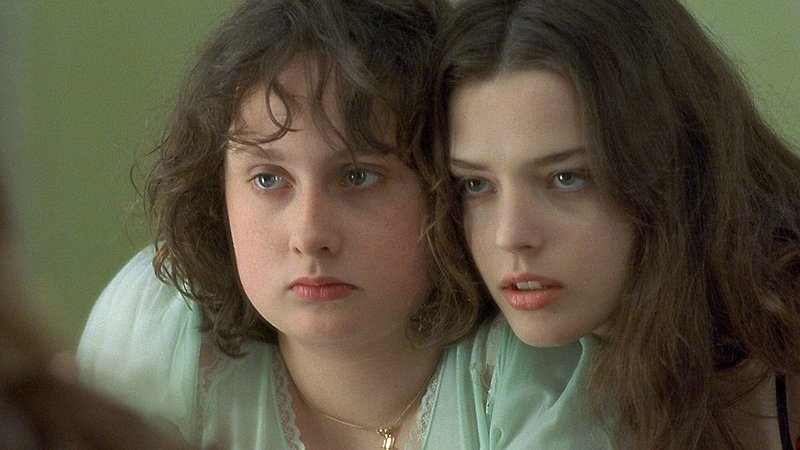
Screened as part of NZIFF 2001
À ma soeur ! 2001
aka Fat Girl
Purposefully shocking, the films of French writer/director Catherine Breillat explore the allure of danger and the power of masochism in female sexuality. No less a demonstration of her anti-romantic convictions, À ma soeur ! is a much more engaging, and ultimately more devastating, work than its predecessor, the coolly didactic Romance.
The film is centred on the competitive but loving relationship between two sisters, the slender, attractive Elena (15) and the plump, more imaginative and forthright Anaïs (12). Anaïs’ intimations of her own sexuality are more deeply affected than she is prepared to admit by the spectacle of Elena’s headlong rush into a sexual relationship with Fernando, a young Italian student. The two girls share a bedroom in the family beach-house. The student’s shameless seduction routine and Elena’s conditional surrender are witnessed by the younger girl in graphic detail.
The truth about Fernando’s romantic ardour preciptates a family crisis which drives this film into very dark territory indeed. Though everything else about the film, including its unnerving frankness, draws us into the anxieties and compulsions of the young protagonists, the numbing ending reminds us just who’s telling their story. — BG
Breillat has the unfussiest style in modern European cinema. She’s a forensic scientist for whom the only interesting compositions are the slides containing clear samples of human pathology that she can fit under her microscope… You could be looking through a window. You could swear it was two hours of accidentally witnessed reality, even though there is art and sympathetic wit in scenes like the family meals, where summer jollity wars with wintry generational tensions, or the funny-poignant swimming pool vignette where we spy on Reboux hugging and murmuring make-believe romantic chat to a wooden diving-board support, and then swimming to the pool’s metal ladder to murmur jealousy – making sweet nothings to it.
Love, says the movie, means taking every chance to make someone else feel sorry. (Or jealous.) And sex is a contingent world where guilt and innocence are interchangeable, where ‘seduction’ can be a polite word for virtual rape, where ‘rape’ – in the extraordinary final scene – can be indistinguishable from mutual fulfilment. For a director so obsessed with a clinical fidelity to surface reality, it’s amazing that Breillat can step back at the end and to reveal an abyss that seems, in hindsight, to have been perfectly planned from the beginning. — Harlan Kennedy, Film Comment, 5-6/01